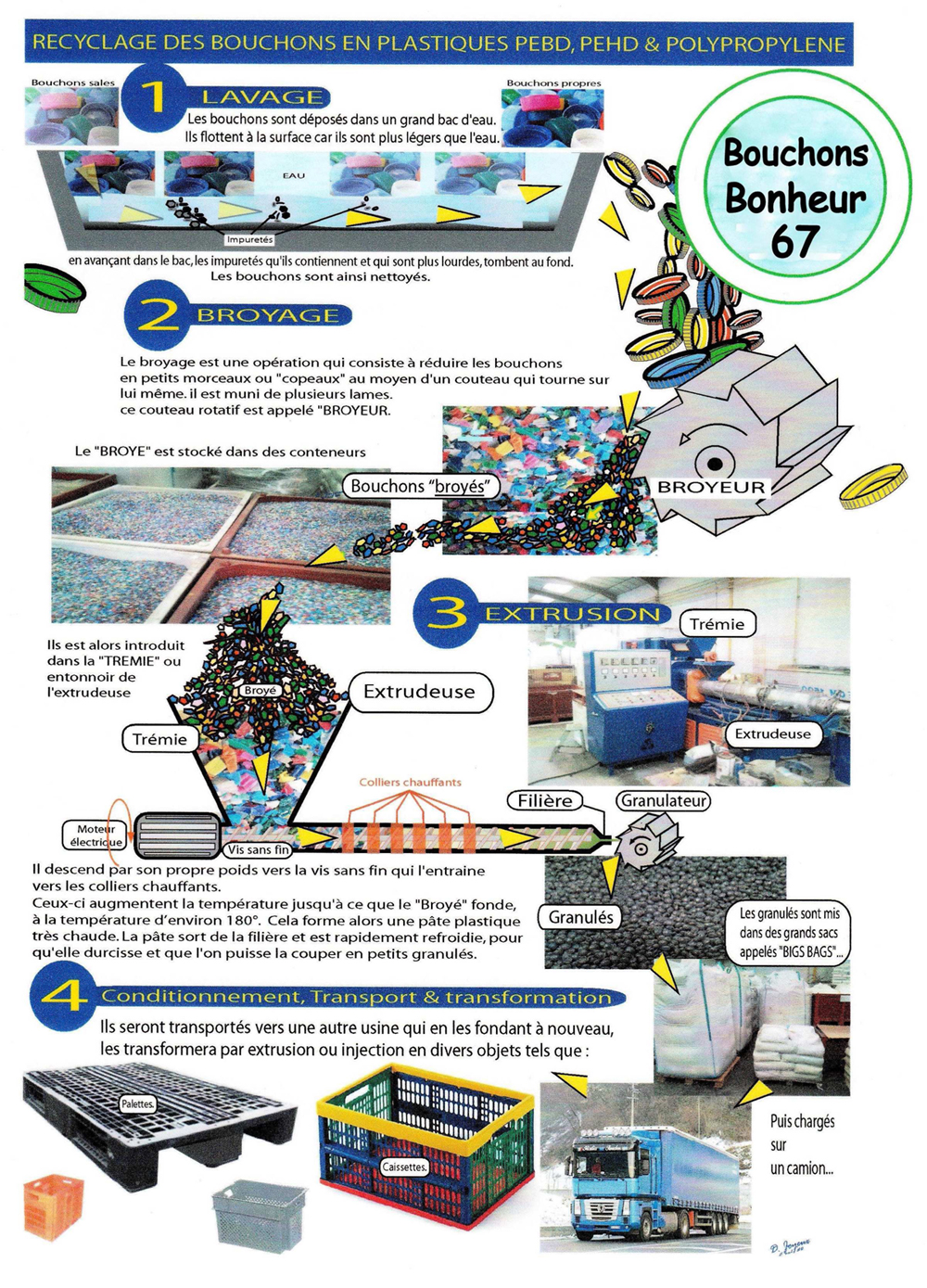Recovery of PolyAl
The polymer-aluminium (PolyAl) composite layer recycling has been mainly fo- cused on energy recovery, taking into account the relatively high heating value of the aluminium–polyethylene composite (ca. 40 MJ/kg) (Platnieks et al. 2020). With the ambition to move up in the waste hierarchy, processes for material recycling are developing. The first designs involved rigid board manufacturing using a hot
14
press. Another promising application for the used aseptic beverage containers is the production of thermoplastic composites (Martínez-Barrera et al. 2017).
EXTR:ACT, the alliance of Europe’s main liquid packaging board producers and beverage carton converters, is targeting the improved recycling of the PolyAl re- jects from recycling of aseptic beverage packages. They estimate that as of today, these European projects allow roughly 30 % (ca 50,000 tonnes) of non-fibre com- ponents of beverage cartons to be recycled annually (
https://www.extr-act.eu/).
Ecoplasteam's recycling plant in Italy (capacity 7 000 tonnes PolyAl per year) pro- duces product aluminium/polymer product (trade name EcoAllene®) that can be injected, extruded, blended and compounded like a normal polymer, and further recycled into products. The process involves a pulping process followed by settling and centrifuging to obtain a solid PolyAl fraction, which is extruded and subdivided into granules.
The final material is a mix of 85 % LDPE and ca 15 % aluminium. The material can be used for household and garden tools, non-food packaging, etc.
ReconPolymers in the Netherlands also manufactures a
blend of LDPE and AL. Still at the pilot site stage, the company has developed various applications based on PolyAl, such as bird feeders made from PolyAl, marketed by a Dutch producer. Recon Polymers now operates a production plant since September 2020. Its an- nual capacity is approximately 6 000 tonnes of PolyAl, which is expected to be reached in 2021.
Plastigram’s patented process relies on
separating the aluminium fraction from the polymer by washing with formic acid and water in certain concentrations and tem- peratures (Pelikan 2020). Plastigram started the construction of its PolyAl recycling line in the Czech Republic in 2019. They are also scaling up in partnership with Tetra Pak and Stora Enso in Poland, which will triple the annual recycling capacity of used beverage cartons in Poland from 25 000 to 75 000 tonnes. This will allow for the recycling of the entire volume of beverage cartons sold in Poland and its neighbouring countries, including Hungary, Slovakia and the Czech Republic. Re- cycled fibres will be integrated into Stora Enso’s recycled board. The separated polymers and aluminium will return to the market as plastic pellets and aluminium foil. Both lines will be operational at the beginning of 2023 (Stora Enso 2021).
Palurec in Germany, which is operated by the beverage carton manufacturers,
sep- arates polyethylene and aluminium in a water-based washing process, and poly- propylene and HDPE are separated from soft LDPE by air fractionation. The plant produces HDPE, LDPE and aluminium fractions for the industry. Plant operations started in early 2021








